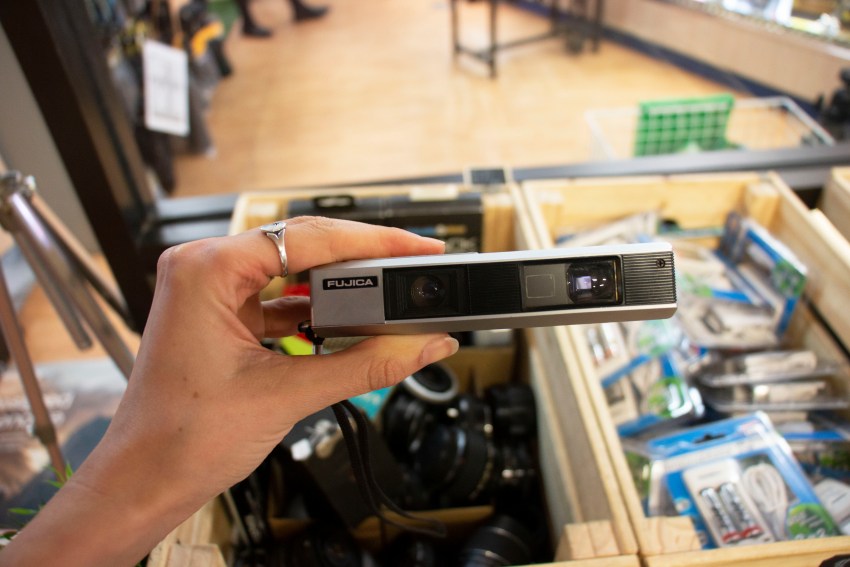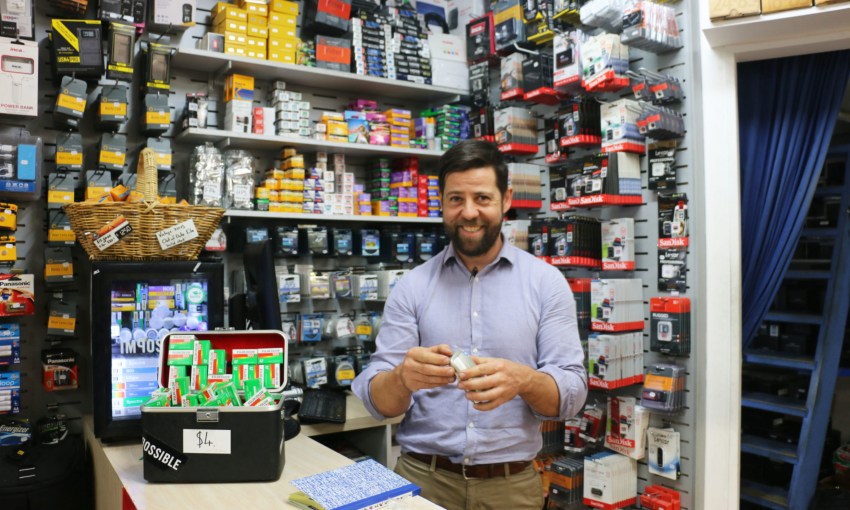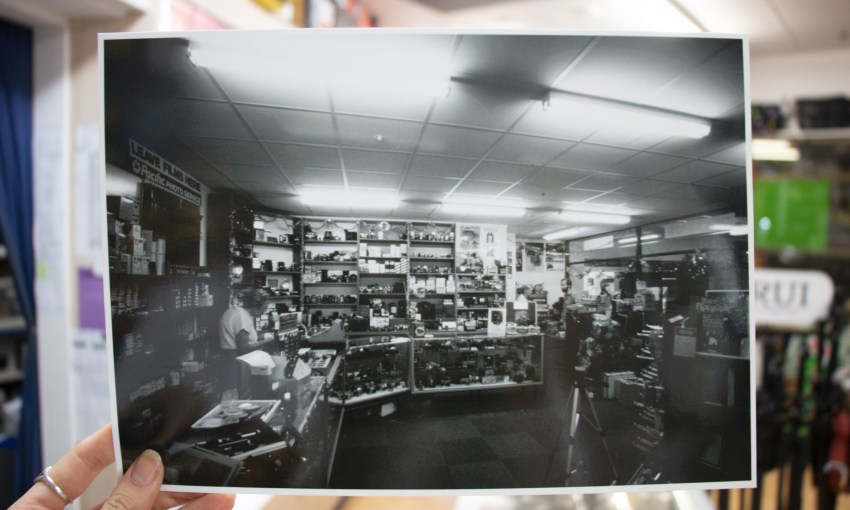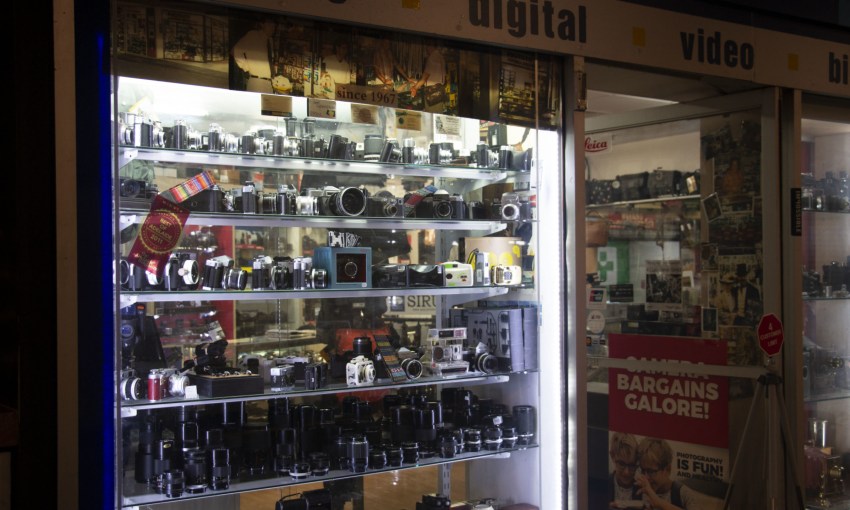Owner of Adelaide’s oldest camera kiosk, Paul Bulley believes there’s a reason his shop is developing a kilometre of analogue film every month – young people are going anti-digital.
PhotoCo is keeping analogue alive
Paul Bulley has worked in his family’s Central Market camera shop PhotoCo for three decades – ever since he was tall enough to look over the counter, he tells CityMag.
Cameras are in the Bulley blood.
The beginning of his family’s relationship with photography started when Paul’s grandfather, Allan Bulley, worked as a photographer in the English Royal Navy during World War Two.
Allan immigrated to Adelaide in 1965 and in the same year opened a camera shop, PhotoCo. The space was eventually taken on by Allan’s son, Peter, along with his wife, Marijan, Paul’s mum and dad.
Paul and his brother, Luke, officially took on the business and started their chapter in 2010.
Aged film photos of the Bulley clan are pasted around the PhotoCo doorframe, which makes you feel like you’re in someone’s home rather than a retail shop.
“That’s my dad,” Paul says from behind the service counter, pointing to a man sporting a very retro brown sweater, who’s hunched over a desk that’s surrounded by deep, grey screens.
Although the family has aged, PhotoCo’s reputation in Adelaide, interstate and overseas has not waned.
PhotoCo camera parts have been sold to award-winning directors, such as Warwick Thornton, who shot Samson and Delilah, and international musicians, such as Ben Folds, who penned our city’s anthem. The shop’s location, right next to the Hilton Hotel and within the Central Market, also means it attracts tourists.
In 1989, the shop became a member of the Camera House group, but Paul says his family never deviated from their business model of offering quality products and premium advice.
But due to the rapidly changing nature of technology, the Bulley’s were forced to keep up with what was new in the photography world, or risk being out of touch.
During COVID-19, this meant Paul had to quickly learn about what equipment would work for a pilates instructor or physiotherapist who had to livestream sessions from home.
“It’s like, hang on, everyone’s asking for this but we don’t have it. What is it? Let’s learn about it and let’s get it in, and then find out what’s the best in these models,” Paul says.
“It’s all about getting excited when someone comes with a problem that they want to solve and you try to solve that problem. The last four months has been, ‘I need to do vlogging from home. What do I do? How do I do it?’ and you’re like, ‘Cool, these are the options.’”
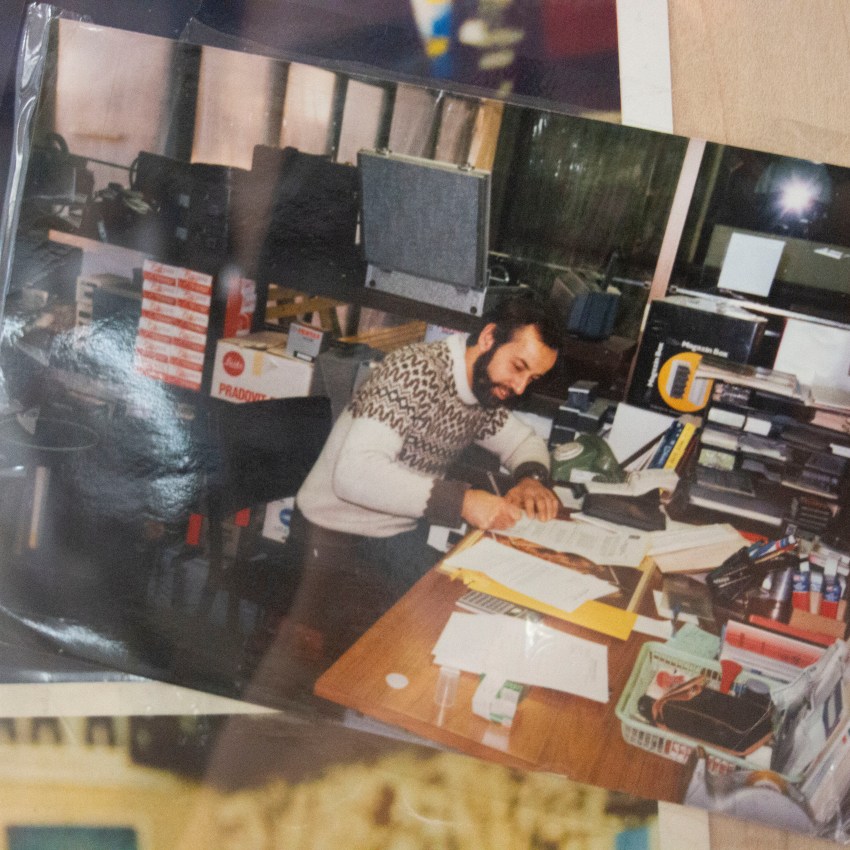
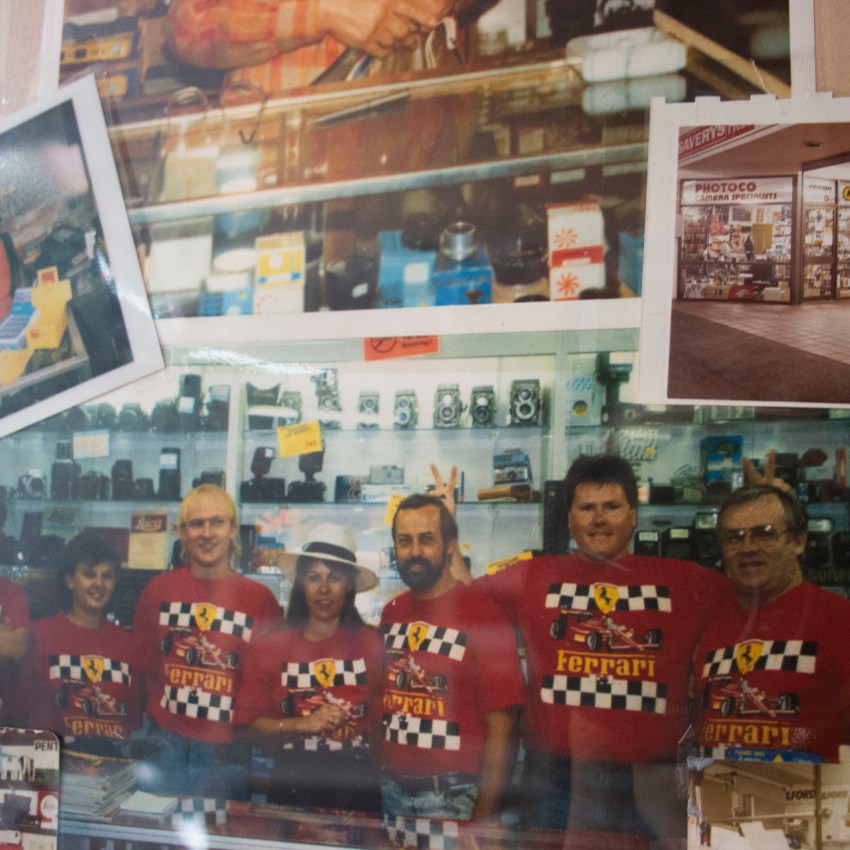
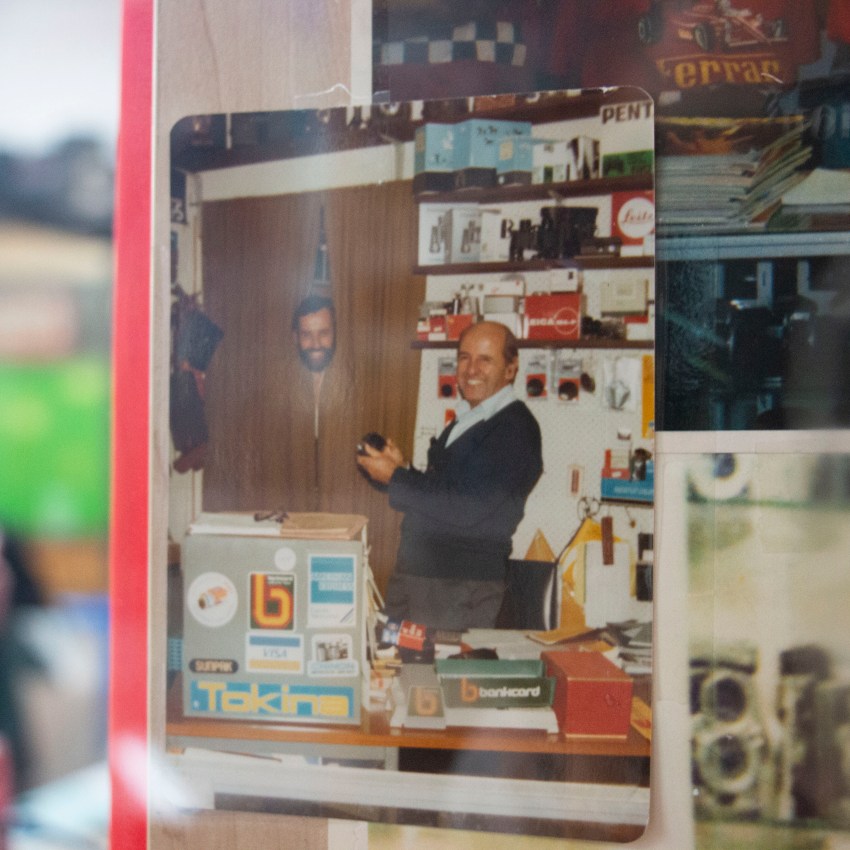
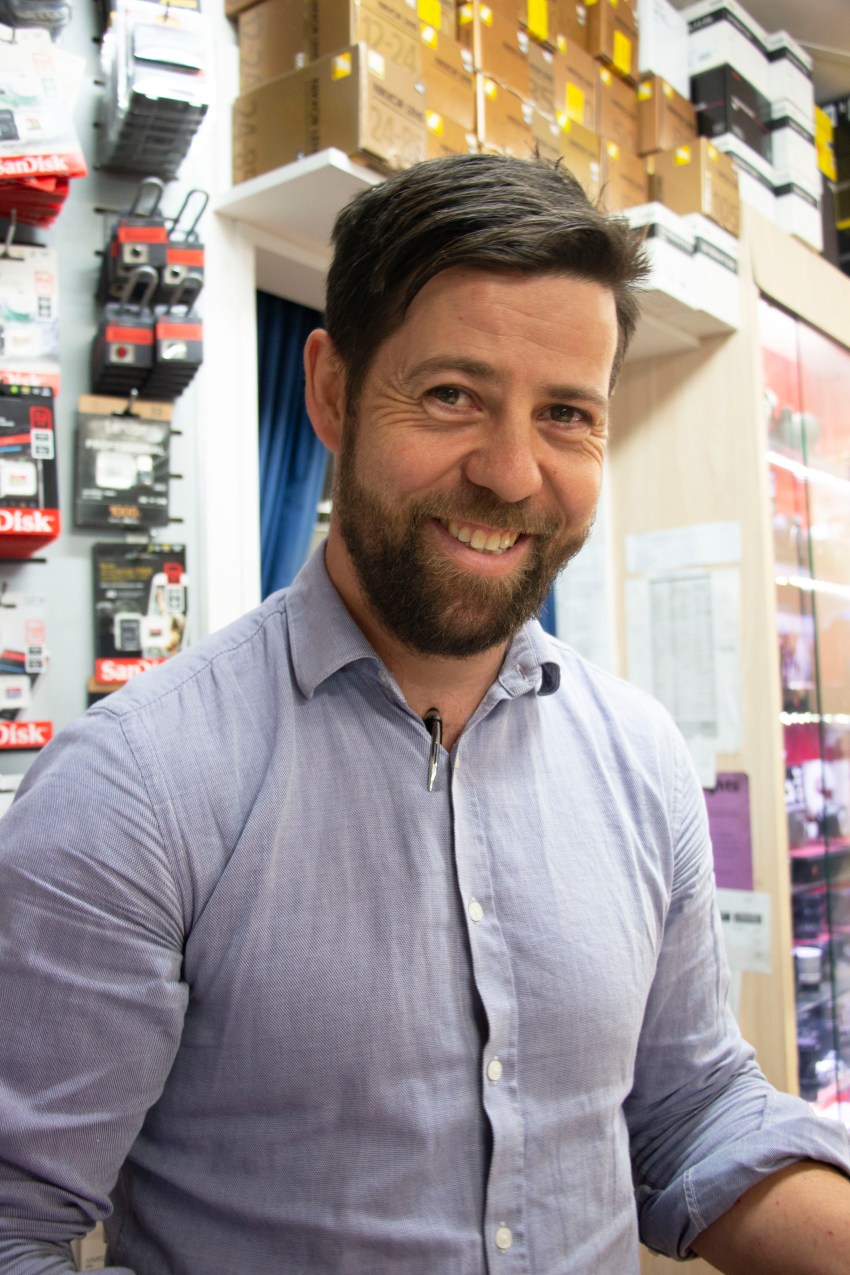
(Above) Paul Bulley is one of the happiest guys in retail you’ll ever meet. (Clockwise from right) Paul’s dad – note the sweater – followed by an assortment of family in PhotoCo.
PhotoCo boasts the cheapest film and developing prices in the city, and Paul also runs affordable photography lessons – $49 for an hour – to keep the culture of analog film alive and “get kids excited”.
But he’s noticed in the last couple of years they’ve been enthusiastic even without his help.
In the past six months, Paul’s estimated PhotoCo developed enough rolls of film to cover the length of the City to Bay.
“Maybe 20 years ago, we were developing 100 rolls of film a day and then maybe 10 years ago, it went down to maybe five rolls of film a day,” he says, “now it’s back up to about 60 rolls a day.”
“I was blown away when I did the math. A 36-exposure film is one-and-a-half metres long – times that by 60, and we’re doing that six days a week. In a fortnight that’s a kilometre of film.”
Despite this success, the shop is struggling.
“The big stores like digiDirect and Harvey Norman, which sell all the new camera gear, make it a bit hard,” Paul says. “We’ll sell a $3,000 camera and make $5.”
But what those online stores lack is passion, an endemic trait of the Bulley clan.
While at PhotoCo, CityMag saw enthusiasm and passion between customers and staff. This doesn’t translate into virtual transactions.
The saving grace in PhotoCo’s film specialisation is those retail behemoths don’t sell old cameras, Paul says. This means PhotoCo and other independent photo stores have enjoyed riding the rise of analogue film photography alone.
The reason 17—35-year-olds are buying old gear, or getting film shots developed, Paul believes, is because they’re participating in an “anti-digital culture”.
“It’s almost like mindfulness,” he says. “Like, ‘let’s find a way where we can slow down and change the way we think about actually having some patience.”
The downside, though, is Paul often sees customers buy overpriced analog cameras for $200 online when they should really be spending $60. Almost every day PhotoCo gets a customer who says they purchased an over-priced faulty camera in need of repair.
But Paul can’t complain. “Film is the only thing keeping us alive,” he says.
Although photography is part of his DNA, CityMag asks Paul why he enjoys taking photos. He waits a long time before answering,
“It reminds me of the things I love,” Paul says. “I’ve gravitated towards landscape photography and I just love the wilderness.
“I lived in Alaska for three years and taught in central Australia for about 15. I’ve gone to those places in my life because I just love the wilderness and the uninterrupted horizons.
“Anytime I take a photo, it’s for the purpose of: would I want this up on my wall and look at it and admire it?”
